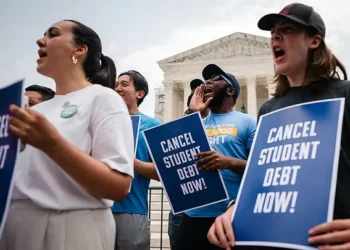In a pivotal decision, the U.S. Supreme Court has turned down a request from Republicans to block the counting of provisional ballots in Pennsylvania for voters whose mail-in ballots were rejected due to technical issues. This ruling aligns with the Pennsylvania Supreme Court’s earlier decision to protect voters’ access to provisional ballots, underscoring the court’s stance on preserving electoral rights in a key swing state.
Court Rejects GOP Effort to Exclude Provisional Ballots in Pennsylvania
The Supreme Court recently denied a Republican-backed request to block Pennsylvania officials from counting provisional ballots submitted by voters whose mail ballots were dismissed due to technical errors. This ruling reinforces Pennsylvania’s efforts to protect voters’ rights through provisional ballots, upholding the state court’s decision.
High Court Permits Voter Roll Purge in Virginia
The Pennsylvania ruling follows another recent order allowing a GOP-supported removal of names from Virginia’s voter rolls ahead of Election Day. This decision, issued despite dissent from the court’s three Democratic-appointed justices, reflects a divided stance on voter access issues.
Pennsylvania State Court Backs Provisional Ballots
In Pennsylvania, the state Supreme Court upheld a lower court decision by a 4-3 margin, mandating the counting of provisional ballots submitted by voters notified that their mail ballots couldn’t be processed. The court stressed that provisional ballots serve as a safeguard for voters’ rights, allowing their votes to be counted if no other ballot has been accepted.
Legislative Intent of the Election Code Reaffirmed
The Pennsylvania Supreme Court majority emphasized the Election Code’s purpose in enabling citizens to exercise their right to vote, not to create hurdles. This decision supports accessible voting for all Pennsylvanians, particularly in a state where past election results have been decided by narrow margins.
The Importance of Pennsylvania in Presidential Elections
Pennsylvania’s significance as a swing state is evident in recent elections. Joe Biden’s 2020 victory in the state was secured by around 80,000 votes, while Donald Trump’s 2016 win over Hillary Clinton saw a margin of approximately 44,000 votes. The state is expected to be closely contested again in 2024 between Trump and Kamala Harris, heightening the importance of the current electoral rulings.
Supreme Court Ruling Amidst Voter Fraud Allegations
The Supreme Court’s decision arrives amidst efforts supported by former President Trump to amplify unproven voter fraud claims in Pennsylvania. Republicans argued that this case is crucial, as it could impact “tens of thousands of votes” in a state that might prove decisive in controlling the U.S. Senate and potentially influence the 2024 presidential election outcome.
GOP’s Request to Segregate Provisional Ballots Denied
In their appeal, Republican officials suggested that, at the very least, provisional ballots be kept separate from official tallies until the court could fully assess the Pennsylvania ruling post-Election Day. The Supreme Court, however, declined this request, leaving the ballots integrated with the overall count.
Justice Alito’s Observations on the Order
Justice Samuel Alito, joined by Justices Clarence Thomas and Neil Gorsuch, issued a statement accompanying the order, remarking on the “considerable importance” of the issue. He noted that temporarily halting the state court ruling would not affect the obligations of officials managing the current election, as the dispute originated from two voters in a previous primary.
Broader Implications of the Case
Alito further pointed out that the case touches on significant issues surrounding court intervention near election times and the balance of power among state legislatures, state courts, and the U.S. Supreme Court in election-related cases. This case may influence future rulings on the federal role in state election laws.
Opposition Brief from Affected Voters
In opposition, the two voters whose provisional ballots prompted the case argued that the Republican National Committee’s appeal constitutes an “election-eve change” in state law that could disrupt provisional vote handling. They cautioned that such a change might even “flip” election results in Pennsylvania, impacting both state and federal races.
Supreme Court Justices Assemble for Formal Photograph
On Oct. 7, 2022, Supreme Court justices gathered for a formal group photograph in Washington, D.C. This session captures the current composition of the nation’s highest judicial body, highlighting the justices’ role in shaping American law and policy through critical rulings.





















